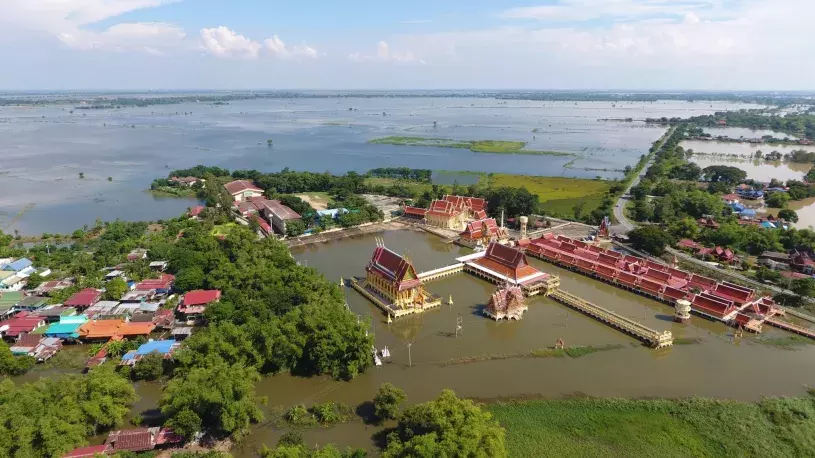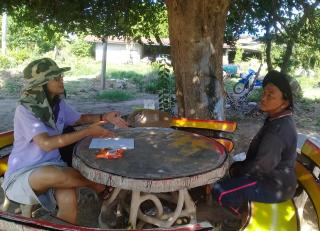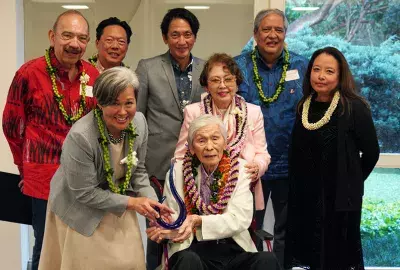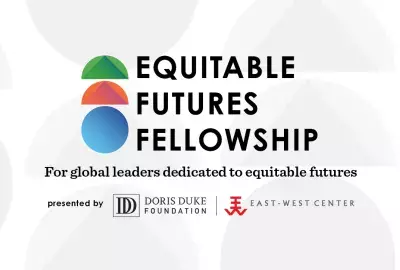Error message

OFFICE/DEPARTMENT
Partnership will explore the intersection between climate change, water pollution, and socio-economic transformations that threaten human and ecological health in the region’s critical river deltas
HONOLULU (July 12, 2022) — To help address how sea-level rise, pollution, and infrastructure development are increasingly threatening river delta communities and ecosystems in Southeast Asia, the East-West Center is launching the Vulnerable Deltas Initiative. The Center is pleased to announce a grant of $945,000 from the Henry Luce Foundation for this new four-year research and education initiative.
Working in collaboration with the Wilson Center’s China Environment Forum and six universities and institutions in Southeast Asia, the initiative will explore the intersection between climate change, water pollution, and socio-economic transformations that threaten human and ecological health in the deltas. This multidisciplinary team will focus their work on three river deltas: the Chao Phraya Delta in Thailand; the Mekong Delta in Cambodia and Vietnam; and the Mahakam Delta in East Kalimantan, Indonesia.

East-West Center Acting Director of Research Jeff Fox said the initiative will “promote policy-relevant research to support river delta communities who are vulnerable to climate change and other risks. We also will be creating opportunities for dialogue and joint research with Chinese and regional experts focused on greening China's foreign direct investments. Importantly, we will apply our research findings to generate new multilingual educational materials in the region.”
EWC President Suzanne Vares-Lum expressed that “It is absolutely terrific that the project includes many opportunities for students and early career researchers at the EWC and partner universities to engage in policy-relevant research and leadership development.”
Jennifer L. Turner, director of the China Environment Forum, said: “Besides applied research around Chinese investment in Indonesia’s New Capital Region and other deltas, I am excited we will be working with Chinese and Southeast Asian researchers to compare common climate and development threats to delta mangroves in China and Southeast Asia.”
Top Photo: Flooding in Thailand's Chao Phraya Delta region. Photo: Chamnong Thammasorn / Pakhai Irrigation and Water Management Project RID, via Flickr (CC BY-NC)
Partnership will explore the intersection between climate change, water pollution, and socio-economic transformations that threaten human and ecological health in the region’s critical river deltas
HONOLULU (July 12, 2022) — To help address how sea-level rise, pollution, and infrastructure development are increasingly threatening river delta communities and ecosystems in Southeast Asia, the East-West Center is launching the Vulnerable Deltas Initiative. The Center is pleased to announce a grant of $945,000 from the Henry Luce Foundation for this new four-year research and education initiative.
Working in collaboration with the Wilson Center’s China Environment Forum and six universities and institutions in Southeast Asia, the initiative will explore the intersection between climate change, water pollution, and socio-economic transformations that threaten human and ecological health in the deltas. This multidisciplinary team will focus their work on three river deltas: the Chao Phraya Delta in Thailand; the Mekong Delta in Cambodia and Vietnam; and the Mahakam Delta in East Kalimantan, Indonesia.

East-West Center Acting Director of Research Jeff Fox said the initiative will “promote policy-relevant research to support river delta communities who are vulnerable to climate change and other risks. We also will be creating opportunities for dialogue and joint research with Chinese and regional experts focused on greening China's foreign direct investments. Importantly, we will apply our research findings to generate new multilingual educational materials in the region.”
EWC President Suzanne Vares-Lum expressed that “It is absolutely terrific that the project includes many opportunities for students and early career researchers at the EWC and partner universities to engage in policy-relevant research and leadership development.”
Jennifer L. Turner, director of the China Environment Forum, said: “Besides applied research around Chinese investment in Indonesia’s New Capital Region and other deltas, I am excited we will be working with Chinese and Southeast Asian researchers to compare common climate and development threats to delta mangroves in China and Southeast Asia.”
Top Photo: Flooding in Thailand's Chao Phraya Delta region. Photo: Chamnong Thammasorn / Pakhai Irrigation and Water Management Project RID, via Flickr (CC BY-NC)







